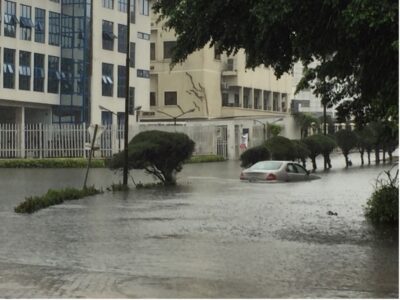Picture a future where Nigeria, a vibrant nation brimming with potential, becomes the world’s third-largest country. My youngest granddaughter will witness this in her lifetime. But here’s the rub: Nigeria is on the frontline of climate change, a battle it’s scarcely equipped to fight. And with the clock ticking, the situation is set to intensify.
Nigeria’s Population Surge and Climate Vulnerability
Let’s talk numbers. Nigeria’s population is on an upward trajectory, expected to hit the 400 million mark by 2050. That’s a doubling effect that’s hard to wrap your head around. And while we once thought it would double again by 2100, the latest estimates suggest a figure closer to 550 million. That’s still staggering, especially when you consider China’s population is projected to decline. Nigeria’s numbers will be nipping at the heels of China’s, at about three-fourths of its population size.
Now, the Notre Dame Global Adaptation Initiative has some stats that should make us sit up and take notice. Nigeria is ranked the 17th most vulnerable country to climate change globally and the 14th least prepared to adapt. And it’s not just future talk; Nigeria is feeling the heat today. The New York Times paints a grim picture: nearly two-thirds of its 213 million people are scraping by on less than $2 a day; violence and banditry are rampant; and the life expectancy sits at a mere 53 years, a full nine years below the African average. Throw climate change into the mix, and you’ve got a recipe for disaster.
Lagos: A Megacity on the Brink
Lagos, the bustling heart of Nigeria, is home to about 15 million souls. By 2035, that number could leap to 24 million, potentially making Lagos the world’s largest city as the century closes. But Lagos has a water problem – and not the good kind. It’s prone to flooding from rivers, heavy rains, and rising sea levels, all exacerbated by climate change. The Economist delivers a sobering forecast: a third of Lagosians might be displaced if global temperatures climb to 3 °C.
Weather Woes and Food Insecurity
Brookings sheds light on the weather patterns that are turning more extreme and erratic. Think scorching dry seasons and brief, torrential rains. These shifts are piling onto the existing challenges faced by local communities. Food security is teetering on the edge, and with the added pressures of climate change and a booming population, the future looks uncertain.
Economic Growth: A Struggling Engine
Let’s turn to the economy. Nigeria enjoyed a growth spurt in the early 2000s, with an impressive average growth rate of over 8% from 1999 to 2010. But the last decade threw some curveballs, with recessions putting a damper on progress. Inflation has been stubbornly high, consistently hitting double digits since the turn of the century.
Today, Nigeria’s GDP growth hovers around 2-3%. That might be passable for a developed nation like the U.S., but for Nigeria, it’s barely keeping pace with population growth. At this rate, Nigeria is just keeping its head above water, economically speaking. And if this trend continues, finding the resources to combat climate change will be a Herculean task.
Governance Hurdles in the Face of Climate Change
Perhaps the most formidable obstacle to Nigeria’s climate adaptation is what’s diplomatically called a governance problem. US AID doesn’t mince words here: Nigeria’s path to a strong democracy is littered with roadblocks at every level of government. Political conflicts, communal clashes, corruption – these are daily realities for Nigerians. Government institutions often fail to engage with citizens or the private sector effectively and lack the capacity to fulfill their roles. Civil society, too, struggles with limited capacity and resources to push for change.
Any government would find it challenging to tackle a threat as colossal as climate change. For a government grappling with these issues and a surging population, the task is even more daunting.
International Responsibility and Climate Action
So, here’s the deal, folks: Nigeria has its share of internal challenges, and while we can lend a hand in addressing some of them, there’s only so much outsiders can do to “fix” a country. What we can – and must – do is mitigate the climate threat looming over Nigeria. This is a country that contributes a mere 0.26% of global emissions, yet it’s disproportionately affected by the consequences. This stark reality underscores the urgent need to curb global carbon emissions. It’s not just about Nigeria; it’s about our collective future on this planet.
In the face of such adversity, the resilience of the Nigerian people is nothing short of inspiring. But resilience alone won’t turn the tide against climate change. It’s a global challenge that requires a global response. And the time to act is now.
Did you miss our previous article…
https://pardonresearch.com/?p=3424
